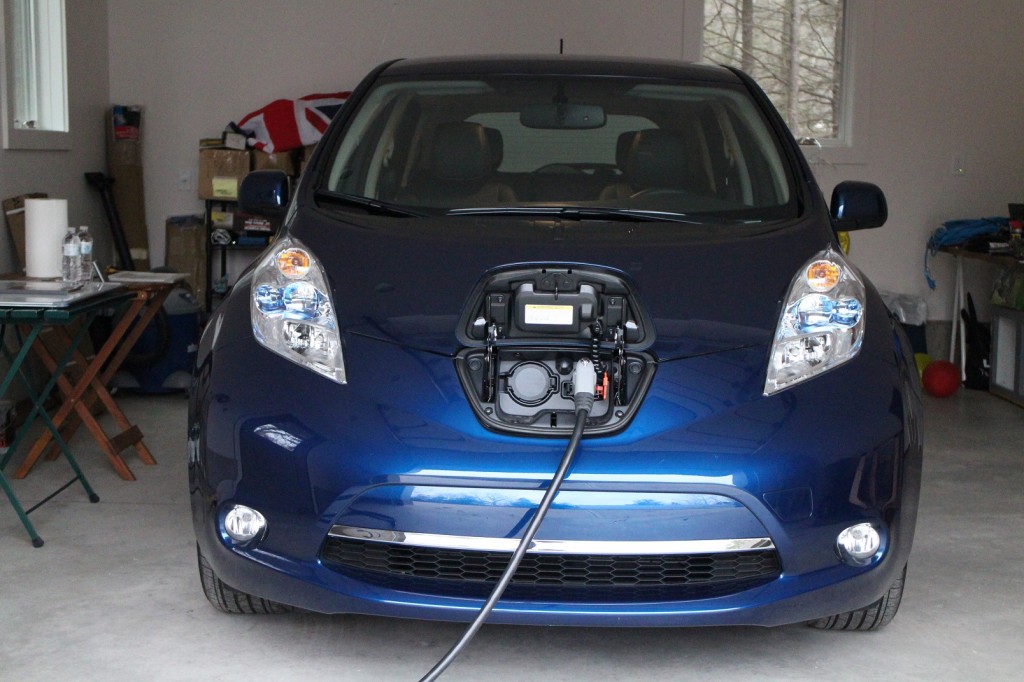Buyers have many different reasons for choosing a plug-in electric car.
Creating marketing campaigns that address all of them has bedeviled highly-paid professionals for five years.
A new campaign urging North American drivers to make their next car an electric vehicle inadvertently highlights the challenge.
DON'T MISS: Green Car People: Who Buys Electric And Plug-In Vehicles?
A press release from an enterprise called the 2 Degree Institute (it prefers 2°) landed at the global headquarters of Green Car Reports yesterday.
The name refers to scientists' goal of keeping global temperature rise from exceeding 2 degrees Celsius over the next century.
It says the enterprise plans to launch a crowdfunded campaign to raise marketing funds to reach buyers both online and via billboards in major North American cities.
![Smart Electric Drive, University of British Columbia campus, Vancouver [photo: Matthew Klippenstein] Smart Electric Drive, University of British Columbia campus, Vancouver [photo: Matthew Klippenstein]](https://images.hgmsites.net/lrg/smart-electric-drive-university-of-british-columbia-campus-vancouver-pohto-matthew-klippenstein_100476884_l.jpg)
Smart Electric Drive, University of British Columbia campus, Vancouver [photo: Matthew Klippenstein]
"The campaign aims to garner one million pledges by the end of 2017," it says, "and 10 million by 2020."
Buyers are being asked to "take the Electric Car Pledge to reduce carbon emissions across the continent."
An ambitious goal, certainly, but a seemingly earnest one.
ALSO SEE: Who Buys Plug-In Electric Cars, And Why? CA Report Explains (Feb 2014)
The challenge is that environmental concerns are only one of four or five different purchase motivations for buying a plug-in car.
As described several years ago in research conducted at the University of California at Davis, electric-vehicle buyers include :
- Early adopters: who want to be the very first to have the latest, greatest, coolest tech, which for cars 10 years ago was a hybrid, but is now an electric;
- Greens: buyers who view reducing overall global carbon emissions and their personal carbon footprint as important;
- Energy-security hawks: who want to cut the influence of oil-exporting countries, and reduce the massive cost of sustaining the oil supply (military vets are big here); and
- The cheap: buyers who build spreadsheets of lifetime ownership costs and conclude that even a pricier electric car saves them money in the long run.
![2015 Tesla Model S P85D - 'Chiseled by man and nature' [photo: George Parrott] 2015 Tesla Model S P85D - 'Chiseled by man and nature' [photo: George Parrott]](https://images.hgmsites.net/lrg/2015-tesla-model-s-p85d--chiseled-by-man-and-nature-photo-george-parrott_100509286_l.jpg)
2015 Tesla Model S P85D - 'Chiseled by man and nature' [photo: George Parrott]
As eloquently described several years ago by Drew David Winter in the industry trade journal Ward's Auto, the association of electric cars with climate change or "green' causes alienates some parts of the political spectrum.
It's worth remembering that three of every 10 U.S. citizens surveyed do not accept the scientific consensus that manmade carbon emissions since the Industrial Revolution began are contributing to climate change, according to a recent Monmouth University poll.
And as electric-car advocates know, essentially none of the two dozen or so plug-in cars now on sale have been marketed as a smoother, quieter, torquier, better way to drive.
CHECK OUT: The Politics Of Electric Cars: Attacking Innovation For Partisan Gain (Jan 2012)
Cracking the code on how to interest mass-market consumers in plug-in cars may require their ranges to rise and their prices to come down still further.
The Tesla Model 3 electric car being unveiled today, and the Chevrolet Bolt EV that will go on sale within a year, both promise 200 miles of range at prices of $35,000 and $37,500 respectively.
How those cars are marketed—early signs from Chevy are mixed—and how much "green" is in the mix may set a tone for the second wave of battery-electric vehicles through 2020.

2016 Nissan Leaf SL, Hudson Valley, NY, Dec 2015
But cars are an emotional purchase for many buyers; the rational aspects of a vehicle's features and performance are often no more than equal with its looks, brand value, and murky societal messages about the meaning of that vehicle.
Which is to say, we suspect that only a minority of electric-car buyers will sign the pledge.
Most will buy the cars because they like them.
Green Car Reports respectfully reminds its readers that the scientific validity of climate change is not a topic for debate in our comments. We ask that any comments by climate-change denialists be flagged for moderation. Thank you in advance for helping us keep our comments civil, respectful, and fact-based.
_______________________________________













